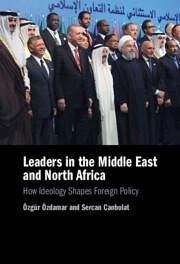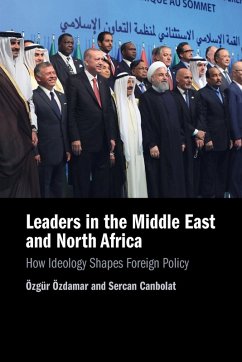
Leaders in the Middle East and North Africa
Versandkostenfrei!
Versandfertig in über 4 Wochen
99,99 €
inkl. MwSt.
Weitere Ausgaben:

PAYBACK Punkte
50 °P sammeln!
Analysing the psychology of fourteen modern leaders from eight countries and three non-state organisations, à zgà r à zdamar and Sercan Canbolat reconsider politics and power in the MENA region. Observing commonalities and differences between these leaders, the authors offer novel insights into their foreign policy and how best to negotiate with them.














